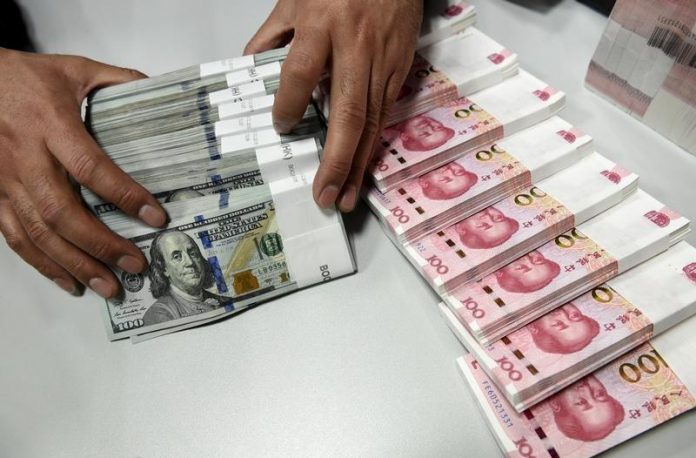ISLAMABAD (July 19): The declining share of US dollars in global reserves indicates that the global monetary system is gradually moving towards multipolarity.
According to Dr. Amanat Ali, an economist at the Pakistan Institute of Development Economics (PIDE), many countries are choosing to use other currencies instead of the dollar for international trade.
“China is emerging not only in the market but also playing an active role in promoting global peace. It has played a substantial part in fostering economic globalization and is advocating for multilateralism in global trade, while also emphasizing the importance of upholding the rules-based international trading system,” he said.
Pakistan made a significant move by utilizing the yuan to pay for the discounted purchase of 100,000 tons of crude oil from Russia. This marked the first instance of Islamabad employing the yuan for settling cross-border trade transactions with a third country.
“The economic implications of this transition are profound. Facing an economic crisis and balance of payments issues, Pakistan was at the risk of defaulting on its external debt. However, by conducting the crude oil trade in Chinese currency, Pakistan has momentarily relieved some of the pressure by reducing its reliance on the US dollar and diversifying its foreign exchange reserves further,” Dr Amanat said.
Moreover, this approach provides Pakistan with the advantage of accessing the discounted Russian crude oil, which is crucial as oil constitutes a significant portion of the country’s imports. The availability of cheaper oil can help alleviate Pakistan’s trade deficit.
“In recent years, Pakistan has become increasingly reliant on Chinese loans and investments, serving as a vital lifeline in an unstable economic environment. Additionally, trading in the yuan may foster stronger trade relationships with other countries involved in China’s Belt and Road Initiative, opening up new export opportunities for Pakistan,” he said.
China is recognized for its efforts for promoting global peace through initiatives that prioritize peaceful relations, diplomatic resolutions, and active engagement in multilateral organizations like the United Nations.
“It is not only Pakistan but also other countries like Argentina that have witnessed an increase in firms requesting to pay for Chinese imports in the yuan instead of the dollar, with authorized import payments reaching $2.9 billion. While some countries, such as Russia, are adopting the yuan due to economic pressures or geopolitical reasons, others are shifting away from the dollar to alleviate the burden of its strong value,” said the PIDE researcher.
Yuan is gaining popularity as a stable alternative currency for international trade and investment, potentially establishing a parallel trading system alongside the dominant dollar. Several countries, including China’s trade partners like Saudi Arabia, Iraq, Bangladesh, and France, have demonstrated willingness to settle transactions in the yuan.
Pakistan’s decision to trade crude oil in the Chinese currency is a significant development with far-reaching implications for the nation and beyond. It provides economic relief to Pakistan and introduces new geopolitical dynamics.
















